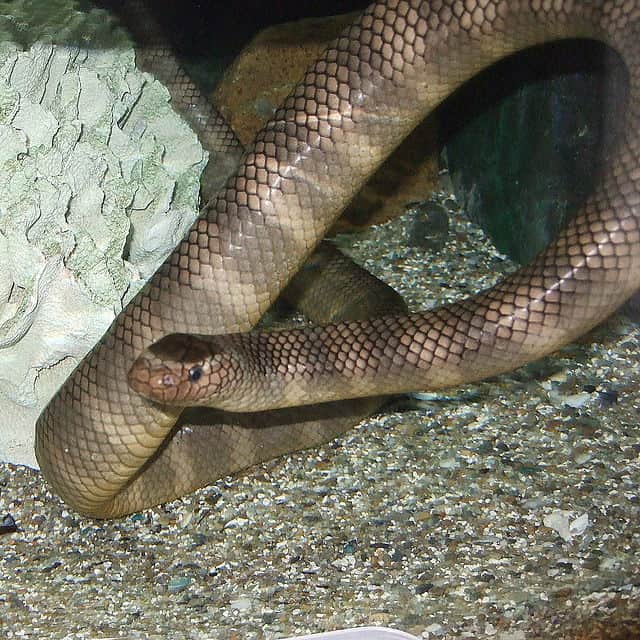
Black-banded sea krait.
The black-banded sea krait (Laticauda semifasciata), also known commonly as the Chinese sea snake, is a species of venomous snake in the subfamily Laticaudinae of the family Elapidae. In Japan it is known as erabu umi hebi (ja:エラブウミヘビ), and in Okinawa as the irabu. It is found in most of the warm waters of the western Pacific Ocean.
This sea snake frequents coral reef areas. It has a short head, thick trunk, and no easily discernible neck. The tail is simply extended skin, spread wide like a fin, and unsupported by any bony projections from the vertebral column. The stomach is comparatively wide. Massing together near the shore, it breeds between narrow cracks in the reef and in caves. It is a nocturnal snake, rarely seen during the day. It breathes air; so it breaks the surface at least once every six hours.
It is too slow to catch fish in a straight chase, so it hunts for fish hiding in the coral. Alternately, gathering in the hundreds, the black-banded sea krait forms hunting alliances with yellow goatfish and bluefin trevally, flushing potential prey from narrow crannies in a reef the same way some moray eels do. The bite is highly venomous and paralyzes the prey. Females lay their eggs on land.
Generally, the species is found in Fiji, southern Japan and Singapore. Its venom is ten times stronger than that of a cobra, making it extremely dangerous. The snake does not attack humans unless it feels threatened or provoked.
The erabu snake is a winter staple in southern Japan, where it is believed to replenish a female’s womanhood. Irabu soup irabu-jiru (ja:イラブー汁) is said to taste like miso and a bit like tuna. This soup was a part of the royal court cuisine of Ryukyu Kingdom; it is thought to have analeptic properties.
Read More About Black-banded sea krait.
